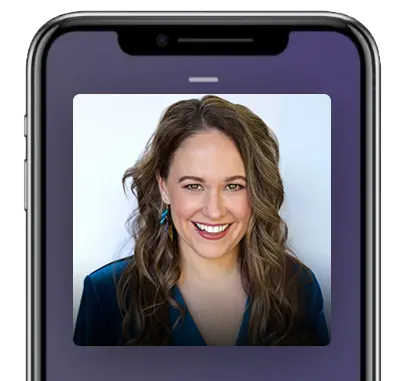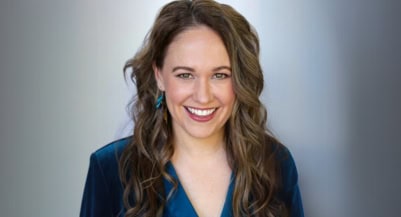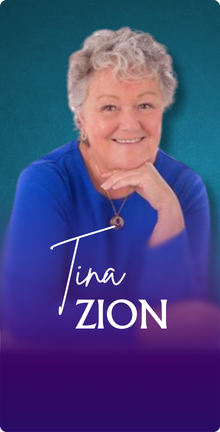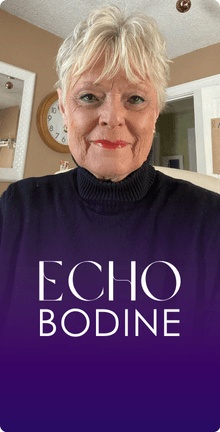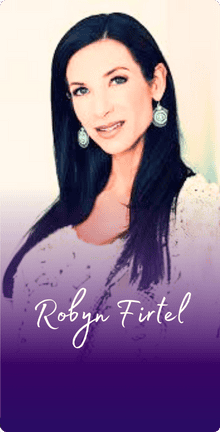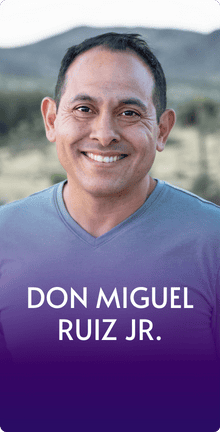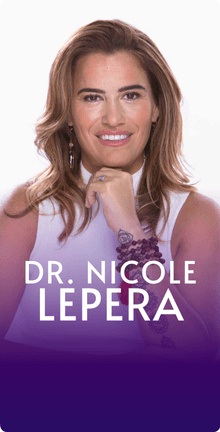In this Episode
- [02:38]Chelsey Goodan, founder of Activist Cartel and mentorship director of DemocraShe, shares her personal journey, exploring the lasting intergenerational impact of comments on appearance and diet.
- [08:03]Chelsey provides insights into navigating divorce and its emotional toll on children.
- [10:41]Chelsey recounts her experience working with Marley, a 15-year-old volleyball player under stress, and how guiding her towards a passion for fashion sketches helped alleviate her anxiety.
- [13:19]Stephan ties Chelsey’s points to concepts from The Body Keeps the Score and ideas of past lives.
- [20:32]Stephan and Chelsey emphasize the widespread issue of sexual assault among teenage girls.
- [25:32]Chelsey urges young girls to reconnect with their intuition and spirituality.
- [34:49]Stephan explores the significance of angel numbers and the practice of journaling.
- [42:17]Chelsey examines how societal beauty standards and dieting affect young girls, often even before they encounter social media.
- [53:26]Chelsey advises on using thoughtful language and mindful strategies when engaging with social media.
Chelsey, it’s so great to have you on the show.
Thank you for having me. This is wonderful.
I’ve been looking forward to this. We’ve known each other for a number of years. I don’t know how long it has been. A decade?
Probably a decade.
Yeah, amazing. So you had this book just kind of come together with so many synchronicities and miracles and just opportunities coming out of nowhere. Could you talk a bit about how this all happened or seemed to occur? What brought all this miraculously together?
I know it’s been quite a story. I was a screenwriter in LA, and I started a tutoring company as a side job to make money, and so on. Over the years, I just learned what a meaningful part of my life this was—like this one time with girls, being able to support them and show up for them so much that I started volunteering my time as a mentor, too, because I didn’t want to just have access just based on money.
Then, the entertainment industry was so hard, and I ended up having a moment where I really let go of what I thought the outcome should be. Immediately, this book idea just rushed into my brain. In a way, I was like the translator, if you will, for teenage girls. I know how to listen in a way that they feel really deeply understood, and I can translate that out to parents and adults.
It’s not like I’m a parenting expert. It’s much more like I’m their portal, their microphone of what they want to say to the world. Everything about the book just came together so fast, and sold it to Simon & Schuster. It’s been wild. From the moment I had the idea to publication, it’s been only two years, which is wildly fast for a book.
Teenage girls want to not feel judged and shamed, which is, honestly, I believe, what all human beings want to feel.
And you had some wonderful success already with the book getting mentioned by Oprah. What happened there?
So Oprah Daily bought the exclusive rights to publish an early excerpt, and then they’ve now quoted me on social media, and I’ve been a huge support. There’s a lot in the works that I can’t even say yet. That is all very exciting.
Amazing. What do teenage girls want to say to the world?
They want to not feel judged and shamed, which is, honestly, I believe, what all human beings want to feel. Actually, I think the way that teenage girls struggle really informs the same wounds we have as adults, the same struggles we have as adults, and lots of times, those wounds happen in our teenage years, and we carry them into adulthood. It’s a lot about how we help a person feel heard, understood, seen, and valued exactly how they are, rather than trying to fix, change, and improve a kid or even a person in your life.
So what do we do? I have three grown daughters in their late twenties and early thirties. The horse has left the barn, so to speak. Is it too late? Is there something I can do to help my grown daughters now feel loved, understood, not judged, and so forth?
For older children, I often say the starting point is actually having curiosity about your history together. And maybe you’ve already done this. I know you lean into these types of care-centered conversations, but making amends is honestly usually a big starting point. I talk about it, and it concludes the book because that’s the clean slate or the new beginning that many parents want with their kids when there’s maybe any contention. I’m not saying you have any contentious relationship. There’s lots of build.
No matter what happens, we’re all imperfect, messy humans.
We have baggage with parent-child relationships. No matter what happens, we’re all imperfect, messy humans. So, I didn’t expect to write about making amends in the book. What happened was I kept asking the girls what they wanted most from their parents, and every single one of them was saying some type of apology. It was pretty gut-wrenching, honestly, hearing the type of apologies they wanted. It was clear to me that their parents didn’t even realize. It’s not that their parents are even bad in any way. They just don’t realize how these little things affect kids and how they perceive things differently.
So, lots of times, I always advise phrasing everything as a question with genuine curiosity—no judgment, no defensiveness. It’s just like, “Hey, was there any time during your teenage years that you felt like I could have done better or something that I can make amends for now or something that I can heal now that maybe you didn’t feel understood or you didn’t feel heard of?” Just asking that question, even as a grown woman, whether there’s an answer or not, you feel really cared for. There’s almost relief where you’re just like, “Whoa, okay. My parents were willing to be really honest with me, put their ego aside and really listen to what I might have to say.”
You’d mentioned earlier that you might be surprised that something you might have said or done that you thought was small or completely forgot about was a wound they carried with them for years. What are some examples of those sorts of things?
Carefully chosen words can either scar or uplift—our language shapes how children see themselves and their place in the world. Share on XI definitely have some. Because, again, girls adult me up. By the way, the book is largely informed by the girls themselves. I quote them. They were involved in the full writing and editing process. They picked the chapter titles. I really am trying to stay true to what they want to say. Let’s say I’m just on a beauty narrative, right? There are so many different harmful narratives that happen.
I have one where my mom innocently told me to suck in my gut twice in my life. That’s it. It wasn’t some big repetitive thing. It hit me so hard. And keep in mind, I say this with compassion about my mom. She’s just functioning out of her own narrative, out of what her mom gave to her, right? We’re all kind of victims of the same system. But she had told me to suck in my gut, and I felt so insecure about my stomach for decades from that. Also, the mom comments on her own looks, beauty, and weight, obsessing about dieting and culture. All those things have really big impacts on a girl.
I just had a girl email me after she read the beauty chapter, and she was like, “Oh, my gosh, I wish my mom would have read that chapter because then she wouldn’t have just been dieting all the time, which made me think I had to diet all the time.” And again, it’s not as overt as you think. That one’s a specific beauty that tends to happen with moms.
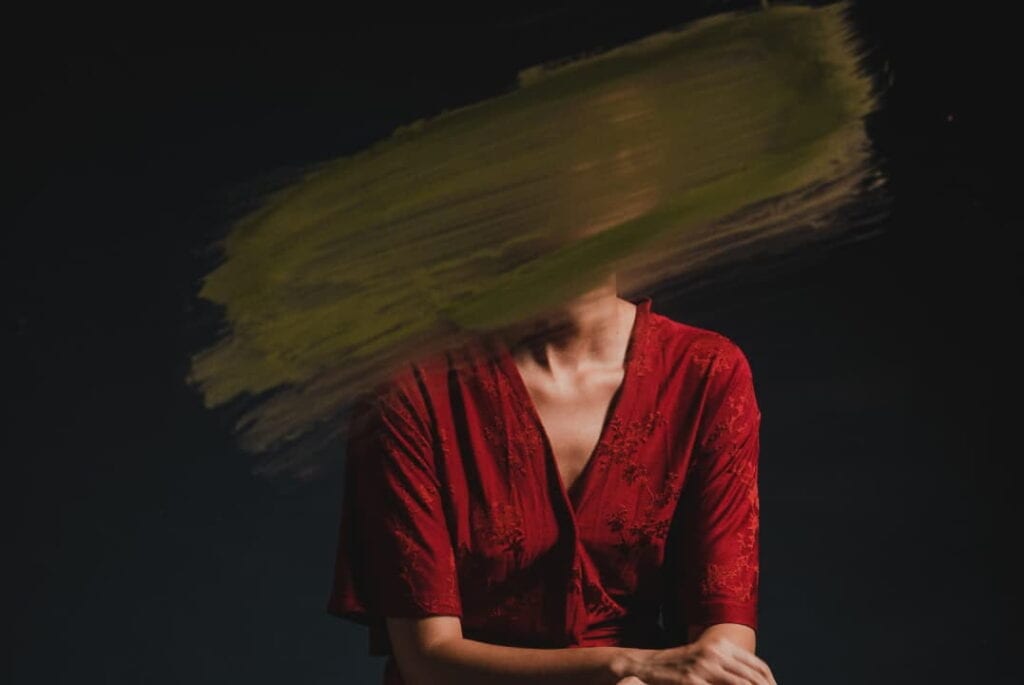
I’m a child of divorce, and I have really good parents and how they handled it. And there, hearing later in life, like, “Hey, we could have done that better. When we were in the kind of throes of that fight or contention, could we have handled that better? Is there anything we did that made you feel responsible for caretaking for us, or have you been a cause of this in any way?” Just checking in about how maybe that divorce moment impacted their life, a lot of adults will say, “Oh, no, it’s fine. It’s cool. We worked through it.”
But really getting into the subtler moments and so they can feel like, “Oh, you know, that could have been better.” It’s like, “Okay, great, I’m sorry it played out that way.” We were all doing the best we could. So it could be a big thing like divorce. It could be a small moment about your looks. There’s always an opportunity to say things that might have an impact.
What would be some examples if a fair number of our listeners were divorced and had children? So what’s the process here? How do you find out? It’s pretty obvious that kids who go through parents splitting up are going to feel some anxiety or fear of the future and stuff like that. That’s inevitable, I guess. But what are the smaller, subtler things that stay with the children as they get older, wound them, and make them less than adaptable to this world?
Any words or actions that throw a destabilizing force into a kid’s life become a stabilizing force in their own mind.
Well, it doesn’t have to be just divorce, but anything that throws a destabilizing force into their life, where a kid has to become a stabilizing force in their mind. It creates perfectionism and people-pleasing, two of the biggest things I see with teenage girls. Girls tend to respond with perfectionism and people-pleasing because if they think, “Well, if I’m just perfect enough or just likable enough, everything will be okay, it’ll be better, and I’ll stabilize. It doesn’t have to be wildly chaotic.”
Again, my parents handled their divorce very well on objective accounts. But I still certainly adopted a type of help everyone put everyone else first, make sure everyone’s an okay type of mentality. We put that on women in general. There’s a lot more pressure to be perfect and likable.
A lot of people ask, “Why do teenage girls specifically have the most anxiety disorders of any gender or age category?” I know people love to talk about social media, and we can talk about those impacts, but what I see is that the pressure on them to be perfect and likable creates their anxiety. And it can, again, be really subtle. I’ll share a story from the book. 15-year-old Marley was the star volleyball player. “I was so good at it,” so affirmed about it.
She made the varsity team as a freshman. Her mom had been a star volleyball player. Everyone was just so proud of her. But as I was working with her, I could just tell how stressed out she was. She was getting migraines and stomachaches. I finally asked her one day, “Hey, do you like playing volleyball?” She was just like, “Well, I like that I’m good at it.” I’m like, “Right, you’re good at it, but do you like it? Does it bring you joy?” She said, “I like that I bond with my mom about it.”
The pressure to be perfect and likable creates anxiety.
I’m like, “Are you playing volleyball to make your mom happy and everyone else happy?” Wide-eyed, she was like, “Oh, no.” I was like, “What is something that just brings you so much joy that would light you up?” She was actually checking in with herself about what she likes rather than making everyone else happy. She said, “Well, I do sketch fashion sketches in my notebook, on the bus, rides to games.”
I’m like, “Amazing. I know a lot of girls who are into that. They do this sewing class on the weekends. What do you want to do that?” She’s like, “Oh, my gosh, that’d be so amazing.” We were able to bring her mom into the conversation. She ends up quitting volleyball. By the way, I was the first person who had ever asked her if she liked volleyball. And often, when a girl is good at one thing, we affirm.
That’s where her value and sense of worth tend to develop. When she switched over to fashion design and so on, she became excellent at that, too. Her migraines went away, and her stomach aches went away. She was so much happier. It’s just these pressures that we put on them that prevent them from aligning with their actual authenticity. What lights them up, and again, is because they think if they achieve and succeed, then they will stabilize their environment around them.
I know that was a long journey. I just took us on from your very good question about divorced parents. But it’s a little bit more about how there’s going to be always destabilizing things that happen in a kid’s life, and how can we actually check in with them and see, help them determine what creates their well-being.
Wow. You’re doing such a service for humanity with this book. It’s really amazing.
Thank you.
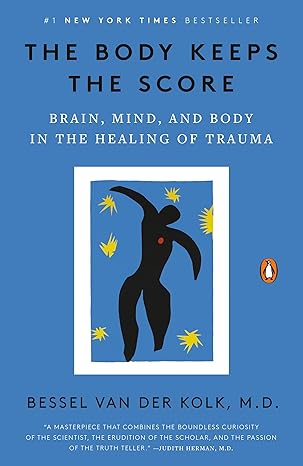
So, this girl who had migraines and stomachaches reminds me of a book called The Body Keeps the Score. There’s another book about how this stuff kind of spills over from lifetime to lifetime, and not just from this lifetime, and I forget which book it was that was on that topic. But could you have a cheat sheet? These are the sorts of issues I’m inheriting from my early childhood and past lives, as well as whatever that cheat sheet would be.
I learned this from Tina Zion, a past guest and an amazing medical intuitive. Lower back pain usually equates to fear of loss and financial struggle. If you’re feeling uncertain or fearful about your future financially, it can manifest itself as lower back pain. So if you know what these different body parts, organs, and so forth are associated with, you can say, “Oh, migraines, that could be this, that, or the other thing.” It’s kind of like having a lookup table.
Let’s say that you’re looking up an angel number. You keep getting 1111 or 333 all the time, or you’re looking up a certain animal, a certain bird because they keep showing up everywhere you travel. That’s no coincidence. That’s no accident. It’s by design. And that’s a message.
So if you look that up and say, “Wow, that really resonates.” You can avoid a whole lifetime of carrying that struggle, that chronic pain or ailment with you through decades of your life. I’m very relieved to hear that this girl lost that issue with the migraines and the stomach aches. But many of us carry this stuff around for decades.
Yeah. I find, too, that it’s unprocessed emotions and feelings. And that’s a big part of the book. The first chapter is about feelings and how we hold the space for a girl. Specifically, teenage girls get very shamed, dismissed and minimized for their big feelings that are dramatic or emotional. It’s so unfair to them because the truth is all humans have big feelings. We just, like adults, have learned how to better bottle and contain and shove them into our bodies where they create pain.
What if we just held space instead and listened to a girl vent and were like, “That sucks. That sounds hard. I’m sorry that you’re frustrated right now and actually gave room for displeasing feelings.” And again, I will bring up the fact that it tends to be a girl-specific thing.
Art comes out of your own wounds.
Like, boys are allowed to get angry and have that more. A woman, a girl, when she’s angry, she’s immediately laid into about it. So, she doesn’t have a lot of space for someone to just listen and hear when she’s struggling.
I don’t want to get too personal here, so you can dodge this question if you want, but through your own health issues and journey, did you come to find that there was a hidden message or some sort of lesson for you to unpack and process?
All that kind of comes through in this book, too. I very much have healed my own inner teenage girl in the act of writing this, as art comes out of your own wounds. I would say a lot of what I had going on was bottled, contained, and stuffed with repressed emotions that I never let myself feel because I thought that if I weren’t likable, I wouldn’t succeed in life. For me to be upset about something or angry, my teenage brain was like, “Oh, I’m not going to be liked then.” And so you stuff it down.
I was a real overachiever. Rather than just sitting and being and naming a feeling—the actual act of naming a feeling is so helpful in terms of research behind this—I included a feelings wheel in the back of the book because, lots of times, we’re so limited in our vocabulary. We’re just like, “I’m sad. I feel bad right now.” The feelings wheel expands out into more descriptive words. I remember the day I landed disappointed, and I was like, “Oh, wait, I feel disappointed.” Then, when I heard the right emotion, I was relaxed.
I came over my body and realized that disappointment can be a severe emotion. I really underestimated how impactful disappointment is. And instead, I gave it its full moment. I cried out old years of disappointment. Do you feel an impact on your body when you do things like that?
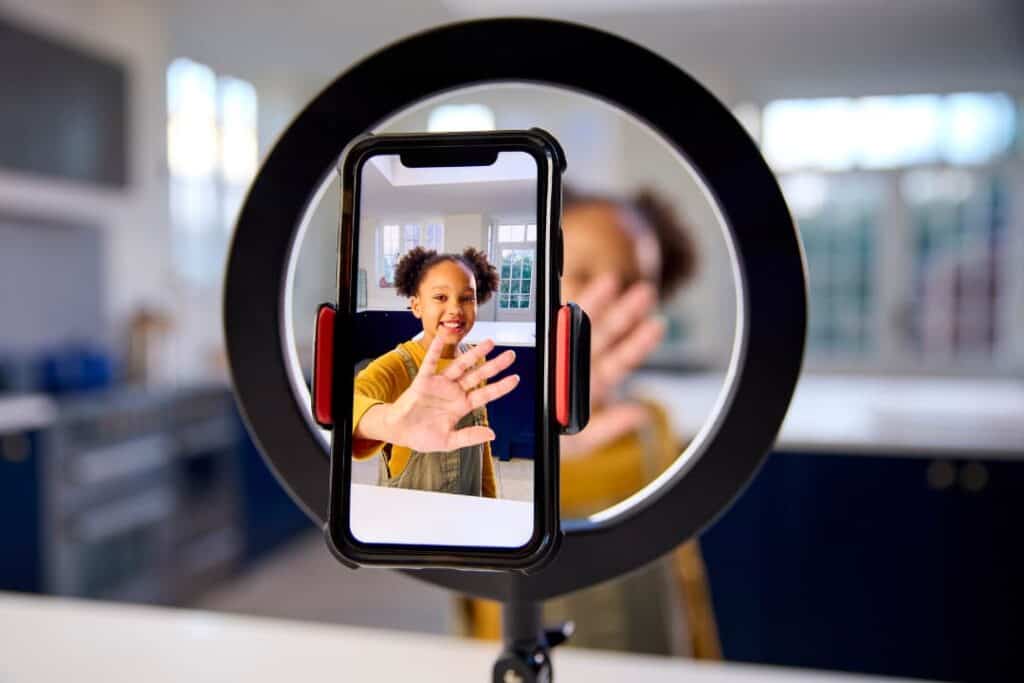
Yeah. Amazing. So how are you helping these teenage girls to heal directly, not just the ones that you worked with, but the ones that will probably never read your book and their parents didn’t read your book or won’t read your book? How do you help them? How do you turn this into a global movement?
Well, thankfully, I have a lot of big names behind this book now. So we’re thinking there’s going to be a movement. So much of it comes back to empowering a girl’s participation, voice, and choice in her evolution. Instead of us coming in and just telling her a lot of shoulds, what you should look like, what you should do, what you should be, and breaking free from those types of restraints. There is a lot of the larger narrative going on in this book. I believe fully in the ripple effect of these types of conversations.
I’m already, from people who’ve read the excerpt or something, getting messages of, “Oh, my gosh, I just had a conversation with my daughter where I was more honest with her, and it had this incredible connection time with her that’s already happening.” So I believe that the act of asking her, “What do you think? How do you feel about this? What do you think the solution is? How would you like to handle it?” Giving more agency to her can change the trajectory for women on a societal level. And that’s breaking free from a lot of the shoulds that I feel have contained women historically.
Marshall Rosenberg is the creator of Nonviolent Communication. He said that should is the most violent word in the English language.
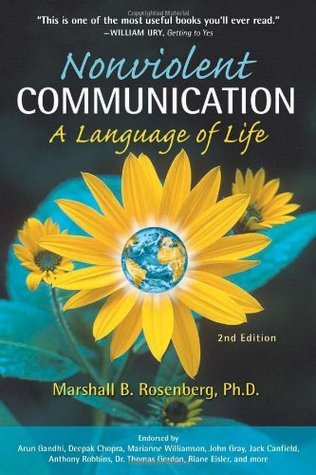
Well, I didn’t know he said that. I love that. I’ve been talking a lot about shoulds lately. I should know that.
Yeah. And another thing he said, which I think was really adorable, was don’t should all over yourself.
Yeah, we should. Teenage girls, potentially more than anyone, are so trying to be controlled, judged, shamed and so on.
And not just controlled but stifled and used as a tool or wielded as a weapon. And especially in third world countries, you hear these crazy stories of these girls who get traded by their parents or sold or just the insanity of it.
And it’s not just third-world countries. We have a human trafficking problem in the US as well. But you talked about generational trauma, or you hinted at it earlier; I would say sexual violence, sexual assault is something. That historically has really been something passed down through generations. That’s something I address in the book and the sexuality chapter in a big way because it is something that’s a chain that we need to help free women and girls from in a big way. It’s phrased as violence against women as if it’s a women’s issue to solve. If women could have ended the violence by now, we would have done it.
It is a male violence issue. It’s how we socialize with men and boys. Why is there so much violence in the first place? What if we actually started having conversations about that instead? Because what girls feel is that their clothes are to blame. They need to do something differently to make sure they don’t get assaulted. Only eleven states teach consent as part of their sex education curriculum. And if we’re not even teaching consent at a high level, of course, that would explain a lot.
Consent puts the responsibility in the correct places rather than the amount of dress codes that shame girls that they are apparently responsible for.
Consent puts the responsibility in the correct places rather than the number of dress codes that shame girls that they are apparently responsible for a boy’s inclinations. They’re not. A boy needs to be responsible and be taught how to be responsible for that.
How do you personally make sense of the injustice and the tragedy, the travesty that’s going on all over everywhere in the world in regards to all this? How does it even make sense to you? Or we have this beautiful, miraculous world we live in where things are just miraculously provided for us, and yet we have these difficult things happening in the world.
People are functioning out of hurt and pain; that idea of hurt people hurts people. There are cycles, and I love this idea of being a cycle breaker that’s happened in ours. Honestly, in just the last five years, I would say that term has become a bigger deal of understanding what cycles of, whether it be violence or trauma or pain that have happened through your family, through your childhood, and how do you heal yourself in a way that breaks that cycle?
I do believe we don’t learn and grow without pain. Unfortunately, it’s always your best teacher. As much as I’ve wanted people to change or grow, it wasn’t until they hit enough pain and were in enough pain that they started making different choices. It’s unfortunate that we have to hold the container of a world that has pain in it, and it is an impetus for growth. But in terms of sexual violence, we need to bring a lot of attention to just the epidemic levels that it is.
One in five girls is sexually assaulted on college campuses, and why isn’t everyone talking about that? That’s like a war being waged on them on college campuses. There’s this Funny or Die video that I thought did so well to create levity so we could actually receive the intensity of that message. They had five boys hanging out like a frat house, having fun, and this bear arrives at their door, and the guy’s like, “Oh, no, it’s cool. The bear is just gonna eat one in five of us or attack one in five of us.”
People are functioning out of hurt and pain, like that idea of “Hurt people hurt people.
They were like, “Wait, what? One in five of us are gonna get attacked by this bear?” It’s like, “No big deal. No one’s talking about it. We’re just trying not to look at it or see it.” And it gives you this idea, like, “If that were happening, we’d be killing all the bears. We would be doing something about this bear epidemic.”
It’s not that I’m trying to villainize men or boys in any way. I actually have great compassion for them, as they’re also functioning out of a society that does not serve them as well. I’m just trying to show how girls, in particular, feel really crazy that no one cares enough about this. Like, “Oh, I guess it’s no big deal that a college campus isn’t a safe place for me, and no one seems to care that much about it. How would it be different if it was happening to boys?” Actually, it would be very different. We all know that to be true.
Yeah, male privilege. So, let’s talk about girls and spirituality. What are you finding through these interviews, through your understanding of what girls are going through, their struggles, their epiphanies and so forth? How are they relating to God, to their higher power or not? And what are some things that would most help us help them right now?
Wow, what a question. That’s the first time I’ve been asked this question on this intense publicity tour I’m on right now. It’s so valuable, and I’m not trying to be an expert on this in any way, but I’m just going to communicate what I’ve experienced. I would say there are tools in the identity chapter of how they connect to their authenticity and inner voice. That is the way in often because so often, again, there are so many shoulds and all these external layers that have to be shed outside voices.
As much as I’ve wanted people to change or grow, it wasn’t until they hit enough pain and were in enough pain that they started making different choices.
When they connect to their intuition and inner voice, I find girls have a spiritual nature that naturally develops, where they feel that power bigger than themselves but connected to it in a divine way. So, a lot of it has to do with getting rid of the mean society voice in their head and helping them connect back to an inner truth feeling.
I’ll ask the girls again; I phrase everything as a question. “What are you doing? What activities might you do where you just kind of feel really good about the choice you’re making or feels so right for you?” They’ll often see activities like journaling, doing yoga, going for a walk or a hike, or stuff that much quieter moments that don’t do, “Did you get an A on that test?” type of energy
It’s much more about looking within and trusting that so often, we’re not encouraging girls to even take a moment to ask themselves, “Does that feel good? Does that feel right?” When I help build out that voice that I find is connected to spiritual energy for them, more conversations can evolve about what that looks like for them. “Does that feel like an answer? Am I trying to just give a way into it?”
That’s a good start. I’m curious to understand how you would suggest getting a teenage daughter into being more intuitively inclined or connected or developing a personal relationship with their higher power. One guest I had on the show was Echo Bodine. I read a book of hers called A Still, Small Voice: A Psychic’s Guide to Awakening Intuition.
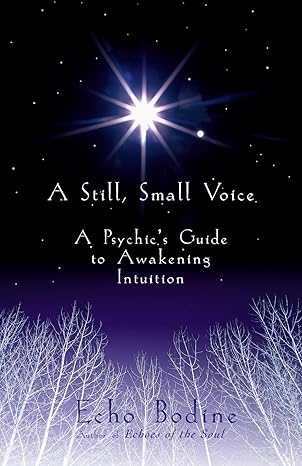
I read that book and knew I had to have her on the show. She was gracious enough to come on; it was a great conversation. There are really tangible, practical tools in that book on how to develop your intuition and how to receive guidance in different forms. We all have these abilities, but we’re mostly shut off from them because we don’t believe in them. Society has told us that it’s not real, or it’s witchcraft, or it’s evil, or it’s magical thinking.
We dismiss it. That little voice in our head is telling us to turn left today, not turn right, and then we end up in an accident because we didn’t listen to it. We start thinking, oh, well, maybe I should have been listening to that little voice. What are your thoughts on that?
Well, that’s exactly what I was talking about. That’s what the still, small voice inside you and your intuition is. That’s a spiritual center and energy that starts growing and developing in a way that feels individualized for her. Another thing, too, is I find that if you try to slap on a certain way to do it, or whether even it is of a specific religion or so on, it kind of has a feeling of a ‘should’ where a girl will tend to wall up more if you do it truly, organically. And again, it’s about asking questions.
You were asking how we develop this. It’s asking questions. It’s like asking her when I’ve asked a girl when you feel connected to something higher than yourself. What activities are you doing? What is that time for you? And again, it is a lot of time to listen to music. They’ll say they like to volunteer with a lot of the girls. This book is filled with incredible stories of activism, too, of girls doing extraordinary things to help the world. They really do want to make the world a better place.
The last chapter is about power. I talk about masculine power versus feminine power, or how power has been characterized by oppression, domination, wealth or status. When I asked the girls what the world would look like if we had only female leaders or a majority of female leaders, it was an oversimplified question, but they did come back to me with these responses of like, “The world would be more fair. We’d have more empathy. We’d care about people more. We would be generous.” Whether you believe women in leadership would do that is beside the point. That’s the world that they want to create.
We have been underestimating a massive, powerful force that’s framed on love.
Actually, their own natural heart is very care-oriented and generous and is all about love. That’s what I really end this book on; it is the idea of love and how we are limiting its expression. When a girl has lots of enthusiasm and exclamation points, we love to brush her off as silly teenage girl enthusiasm. But no, that power and love she has, her love for Taylor Swift, is real and has reinvigorated the national economy. That is not to be underestimated. They ignited Beatlemania for the Beatles, right? They have been behind, igniting many powerful movements, including their enthusiasm and love for something. But instead, as you said, stifled earlier, we love to stifle and squash and contain.
I genuinely think, as a society, we are fearful of a girl’s power and a woman’s power. That is why, as you mentioned, third-world countries and sexual violence and stuff. They say when a village gets taken over, the first thing they do is rape the woman because they know that’s taking away her power. The more you can disempower the women of a community, the more effective tool of war. So we have been underestimating a massive, powerful force that I think is really framed on love. And so, if we talk about a spiritual nature, the best way to get into these conversations is through a conversation around love.
And God is love. The person who feels disconnected from God feels disconnected from love. That’s my understanding. They see the world as a dark place. The universe is unfriendly. It’s malevolent. It’s chaotic. It can’t be trusted or relied upon. They go through life with this tape playing in their head, “Am I safe? Where are the threats in this room or this environment?” And it shapes your whole life, and not in a good way.
In the beginning, the intro of the book is fear in parentheses, and the conclusion is liberation. A lot of it is how we feel fear. We teach girls fear. We teach everyone to fear everything. And that is. You’re totally right. It’s like a block for the energy of love in your life.
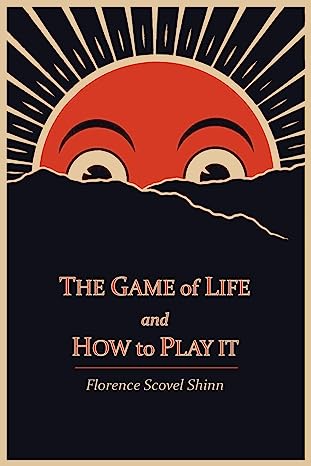
I love the definition of fear. I read the book The Game of Life and How to Play It by Florence Scovel Shinn, and she defines fear as inverse faith.
There are a couple of exercises that I was just going to throw out there and see if these resonate. Maybe you could just kind of direct girls to try if they’re open to it. One is to have a synchronicities journal every time something that’s seemingly impossible odds or something that feels like a sign shows up in their life, rather than just acknowledging it or noticing it. How about the journal?
I’ve had so much meaning come from journaling. I never used to journal, and now I do it, dare I say, religiously. I do it every day, and I write it to God. “Thank you, God, for this, that, and the other thing.” And I write down the messages. I write down the challenges, the lessons, and the insights I get from those challenges.
It’s not just about, “Oh, thank you for my beautiful family. Thank you for my beautiful house.” Like, this is really about a relationship with God. It starts with acknowledging on paper or a digital tablet or something. These are things that you’ve noticed, so you can refer back to them. So you can take an inventory and say, “Wow, this is amazing.”
I also love this idea because it naturally flows with a girl’s inclination to journal. By the way, journaling has this whole old-school connotation of just a teenage girl writing her brushes in her journal in a minimized, dismissive way. What you’re saying is exactly right. There’s so much research to support how powerful and healthy journaling is. Adults often don’t find themselves journaling until they have gone to therapy and have been recommended. But what if we helped guide a girl who was naturally journaling into something that felt productive, helpful, and spiritually connected for her? That’s a great idea.
Just one little example. I get a lot of angel numbers, and a lot of times, they’re repeating numbers because those are the ones that stick out the most. So 1111, 111, 333, 444, etc. Those appear a lot to me. But I also get numbers that are unusual, and I need to look them up to know what they mean. So I’ll be guided on where to look them up. Do I google it and look at Google image search, or do I just pick the first result, or is it the featured snippet?
Breaking cycles of pain and violence is crucial for progress; it's not just a women's issue but a societal one that requires male responsibility, too. Share on XSometimes, I’ll find really unusual ways to get these angel numbers. Here’s one that happened: I wake up in the middle of the night and feel like I should check my phone and see what time it is. Then I saw the time and looked up the angel number associated with that time. I think it was 1.20 in the morning. So I looked up 120, and I was doubting myself. I’m like, “Was I imagining this? Is this real?” Oh, and I had a timer set. I didn’t have the alarm as a regular alarm. I had it set as a timer.
So I got another number for the timer, which was 5.38 or something. I looked up both numbers, and I fell back to sleep. But, I was a little unsure, and it wasn’t that I was unsure that God was communicating with me. I was unsure if I was misinterpreting or just overreaching and making stuff up. I woke up again in the middle of the night several hours later. And this one was undeniable. It was 3.27 in the morning, and my timer had 3 hours and 27 minutes left.
I looked up that angel number, and that one really resonated. I knew that it wasn’t just about, like, “Here’s an angel number,” without a doubt sign, but you need to trust yourself more. So journaling that, capturing not just the synchronicity or the magic happy accident. It’s not an accident, but also, what’s the context that goes around that? Very important. I don’t know—just something to think about.
I love synchronicities. I’ve been having so many myself. They come up for me through people, whether it’s a friend reaching out or a person I run into at an event. It’s wild the amount of connectedness and connectivity through people. I see synchronicities revealed.
What’s an example?

There’s this company I’m hoping to work with, and I feel like I can’t give a lot of details, but literally, I went to a birthday party. The head person my agent had been talking to was there, and my friend introduced her. She and I were apparently friends, and we hung out all night. Wild. Two days prior, there was this whole conversation about me sending the materials, which was crazy.
That’s amazing. And you know what? It’s not crazy. It’s how the universe is meant to work.
I’ve been trying not to use the word crazy with everything coming about. I found that wild feels good because it is kind of like a wild ride. Wild doesn’t have a judgment the same way crazy does for me. But I agree. I think words really matter how you use them.
Absolutely. A word has a matching vibration to it. So, the vibration associated with the word gratitude and the vibration associated with appreciation are different.
Cool. I totally feel that. I’m so intentional with the words I try to use.
It’s awesome. That’s one exercise to add to your arsenal, like a synchronicities journal. It doesn’t feel too kind of religious. I call my journal my God journal because I’m writing to God. It’s more than just gratitude. I’m recording all the messages I receive, etc. For somebody who’s been in a restrictive household that’s very religious and strict with their religiousness, then they’re going to kind of not like that.
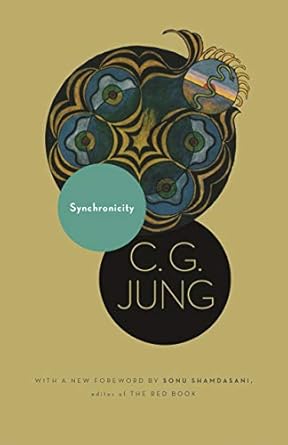
Whereas synchronicities journal, “Hey, this is just science, right?” Carl Jung coined the word and wrote a whole book about it after he had, without a doubt, signs that he didn’t have a name. He called it synchronicities and wrote a whole research book on it. So another little exercise that might resonate with your teenage girl audience is to ask them to, well, first of all, how do they refer to their higher power? Is it God or whatever? And then to refer to that higher power and ask, are you there? And the purpose of this is to see that you actually already receive that still small voice, even though you think it’s yourself, your intuition, your gut, or whatever, or you just. That’s my own inner critic or whatever.
If it’s not so positive, well, you’re receiving psychically already. And if they do a little exercise of saying, “Ask yourself in your head, “God, are you there?’” Or, however, they want to refer to him or her, “Are you there?” And they get a sense of a yes, hear a yes in their head, or get some sort of visual on their kind of third eye, kind of visual part of their brain, their imagination area.
They just got an answer. And there is no other answer than a yes. There’s nothing that exists that isn’t of God. There’s nothing independent of God. So there’s only a yes. And it’s whether they’ve listened and heard it, or they’ve seen it, or they’ve felt it, or they just know it, or they’re not tuned in or whatever, that’s just something to work on. So it’s just. It’s a pretty easy doorway or entryway into receiving stuff psychically from your higher power. What do you think about that?
Well, I would say, too, that what I talk about in the book is actually asking your heart, not necessarily your brain, your third eye. I find that the brain doesn’t feel because the inner critic is so powerful. It can be so powerful, especially for a teenager, that putting an energy down to their heart and asking their heart works differently for them because that idea of following your gut or following your heart, I found that to be good in terms of the naming or defining a higher power. I actually talk about in the book that I go to Al-Anon, which is a twelve-step world where you actually come up with your higher power for you.
Everyone goes through that journey through the twelve steps. I want to actually bring attention to teenage girls these days who definitely identify in the LGBTQ community in a big, big, big way, much bigger than ever before. I’ve had the joy of kind of witnessing in Al-Anon rooms LGBTQ, identifying people who didn’t feel safe from their religious background, the family that they come from to be themselves, and now finding how they name their higher power in those rooms.
And it’s been really revelatory to see how they do that for themselves, to try to own it and what feels good for them authentically. And so I do have a lot of experience with girls not feeling safe in their houses, necessarily. And oftentimes, they are able to find, actually, community on social media, which, you know, so often, social media has looked villainized, understandably so. But also, it’s saving kids’ lives because they’re finding community and feeling accepted in different ways and being able to communicate in different ways because the suicide rate is very high for kids who identify in the LGBTQ community.
So, I bring it up because I want to create an expansive conversation around it. That is actually one limitation. When you say the word God to a kid who identifies that way, they think they are not welcome. That has been my experience entirely. And so the more we can open up the words around it, what might feel right for them, and how they want to describe it, the more I think it is a really important conversation.
I prefaced that by asking what word you want to use. You did refer to your higher power and then ask him or her or it however you want to refer to your higher power. Are you? There might be a question they’ve never considered asking, and what if they get a yes now? They might dismiss it and say, well, that was just me answering it in my head or whatever. But if. And as you say, if you drop to your heart or answer from your heart or reflect, get to your kind of sacred heart space for this kind of dialogue, you’ll find that you actually are psychic because we all are.
Yeah, that’s cool.
Empathy, fairness, and generosity would be at the forefront in a world led by women, driven by the underestimated enthusiasm and love of girls. Share on XWell, I know we’re getting close to time. I do want to circle back to this idea of social media and its impact on teenage girls and just society in general. I’m concerned about its impact on our ability to focus and to work in traction instead of distraction. Our attention spans are declining, and we get addicted. The dopamine hits. I don’t think it’s healthy.
And from my understanding, everything comes from God. This is for our ultimate highest and best good. So, I’m not going to place a lot of judgment on it. I just want to help people get less addicted to social media and their phones if that’s something they care about or wish to pursue. What are your thoughts on that?
I have a media chapter in the book, and there’s a lot of attention on social media deterring teenage girls’ lives and their self-worth, and everyone’s talking about that. I know social media is not going anywhere, at least not anytime soon. It’s here to stay for at least a while. How do we reckon with that fact and meet that situation by trying to approach it in a healthy, good way? I’m much more of the camp of. I’ve been in the trenches with girls who have learned how to actively have healthy relationships with social media and their phones. But it’s because we didn’t underestimate me and her parents and underestimate her ability to be part of the conversation, to be part of the solution to checking in with herself, to determine, like, “This feels good, this not,” rather than being a victim to it.
In that fear mode, there is stuff to fear. I’m not actually underestimating the possible negative impact. But what I see is when we tell girls that they’re just like, it’s hurting them, and you should be scared of it, and it’s like it’s all just a tension-filled space, rather than when I sit with a girl, and I’m like, “Hey, what? Is a social media account inspiring you right now?” The girls are really into mental health issues and psychology accounts. I’ve had so many girls tell me about the different trauma responses that they’ve learned about from social media or their mother wound stuff that, like, people do not deal with until they’re in therapy, in their forties, and because they have exposure to ideas in a big way.
The more I can help her actively choose what might be engaging her heart and mind in a positive way, it’s less a victim to the scroll and also changes the girl’s scroll. You add five different accounts that aren’t stuff that isn’t as good. You add even just five, and it’s game-changing, right? The algorithm adjusts. As much as we want to be mad at the algorithm, and I get it, it’s a reality. So how can we also flow with it and flow with participation in a way that she feels empowered?
I have an interesting take on the whole algorithm thing, and I’m curious to hear what you think about this. I see the algorithms, whether Facebook, YouTube, Instagram, TikTok, or whatever, as just another kind of console or output device for the upper worlds, for the heavens to reach us. So if I have, like, a higher intention to work on myself, to work on my psychology, my addictions or shadow or whatever, and I go to YouTube’s homepage, just that intention will change what the algorithm serves up to me, because I’m in this place of receptivity and positive expectancy and knowing that everything comes from God. And then, boom, there’s a video on the front page that I’m destined to watch in the case of shadow work for me, which I wasn’t really clued into how important that was. There’s this channel on YouTube called Modern Intuitionist, and there was a video that caught my eye. It was on the homepage. It was from that channel. It was about a deconstruction of the movie Black Swan, and it’s all about how to heal and integrate the shadow.
That 20-minute video that I needed to watch at that very moment, right after I had a run-in with my neighbor who ran heavy construction equipment through our yard and did a bunch of damage without permission, really riled me up. Then, this seemingly random video shows up that wasn’t random. That started me on this whole shadowwork journey. The algorithm adjusts to your intention, and it’s just another vehicle for God, your angels, your guides, and your unseen support team to get through to you.
I will say that I have had that relationship with the algorithm in terms of my intention. I’m very intentional about what I like because I know you’re teaching. You also actively teach the algorithm what you want to. It’s not even just an energetic intention. I’m intentional about what I like because they’re going to show me more of that, too. So, again, that’s activating your own agency in the conversation so that you can flow towards something that feels more positive for yourself. And if I put five psychology accounts into a girl’s account, I don’t put it in. I talked to her about it and see what she might be interested in.
And again, sourced from her own interest. But, it’s a huge impact. You can see it in your own scroll. All of a sudden, it’s feeding you something completely different that can be positive. I certainly have learned a lot of positive things. Everyone’s worried about the beauty standards. Honestly, eating disorders are a huge concern with teenage girls. I never want to underestimate that.
But again, that’s from us feeding them a narrative of what they should look like, which actually starts way before they see it on social media. The average age for a girl to start dieting is age eight. The first thing that we say to a little girl when we usually see her well-intentioned is to go, “Oh, my gosh, look how cute you are. Look at your pretty dress. Where’s the little boy?” We’re like, “What are you reading? What sports are you playing? What’s your favorite subject in school?” We are telling a girl so young that her value is connected to what she looks like. That happens way before she starts social media. How do we start this algorithm way sooner to help her make the choices that aren’t focused on that? I agree that the algorithm will definitely reflect a higher purpose.
Yeah. The intention of the developers also weighs in here. If they have a malevolent purpose, as they’re coding the algorithms, well, that’s going to show up in the app that you’re using. So, as an example, TikTok in China is completely different from TikTok here in the US.
Yeah, I’ve heard this. I don’t know much about the difference.
Here, it’s all about things that will get you off into, like, the dopamine addiction world. But if you’re in China, your time is limited on TikTok, and it’s only educational stuff. They’re not these quick-cut, short little things that are addicting but are really value-laid in longer pieces of content for kids to learn stem from.
That is so interesting. If we fear social media, the more we will block whatever flow it could have, the more it could be positive to me. Again, fear is just not always the right choice.
Inverse faith. Well, TikTok is being weaponized to dumb down America and the West. Where’s God in that? Everything has the hand of God behind it, whatever you’re going to refer to God as, but it’s all divinely orchestrated. So this is for our highest and best good, just like everything else is. We just look for the lessons and the opportunities. I always try to see whatever challenge is in front of me as if it is a gift. And my wife, Orion, likes to say that sometimes the gifts are on the bottom. She likes to say that sometimes the bow is on the bottom, and that’s still a gift.
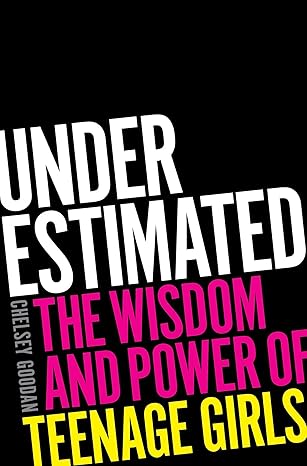
Yeah. And then also my own humility in this, too. I’m not the person over here who’s going to solve the social media addiction issue. A lot of people want that from me, by the way. I get nonstop questions about social media, and I am not trying to claim I’m an expert on this because what’s happening is way bigger than me. All I can share is the time I’ve spent with girls, helping them find a healthy relationship. I know that has value. But yes, there are a lot of angles on this conversation that could be explored.
Awesome. Well, we’re out of time, so if there’s one last wisdom nugget that you want to share with our listener or viewer that you haven’t already shared, what would that be?
I think I’m just going to bring it back to awareness of how our language might communicate shame or judgment. That completely causes us to disconnect from each other and actually have a relationship that’s real and authentic. It can happen in much more subtle ways than we think. So whatever we can do, look within, “Wait, do I have a judgment on that?” And heal that first so that we don’t come at, say, a teenage girl with our own trigger and our own judgment. That’s the type of connection and understanding you’re hoping to have with your daughter or whoever. And so I’d like to leave it on that idea.
Awesome. Well, thank you so much, Chelsey. You’re doing great work in the world. And thank you for sharing your light. Thank you, listener, for sharing your light too. To get the book Underestimated, go to Amazon.
Or a physical book. Get it anywhere that books are sold. You can follow me on Instagram too @ChelseyGoodan, with all the details on the book tour and stuff.
Okay. Do you have a website too?
Yeah, just chelseygoodan.com.
Awesome. Thank you, Chelsey. Thank you, listener. We’ll catch you on the next episode. I’m your host, Stephan Spencer, signing off.
Important Links
Connect with Chelsey Goodan
Books
Businesses/Organizations
Film
People
Previous Get Yourself Optimized Episodes


